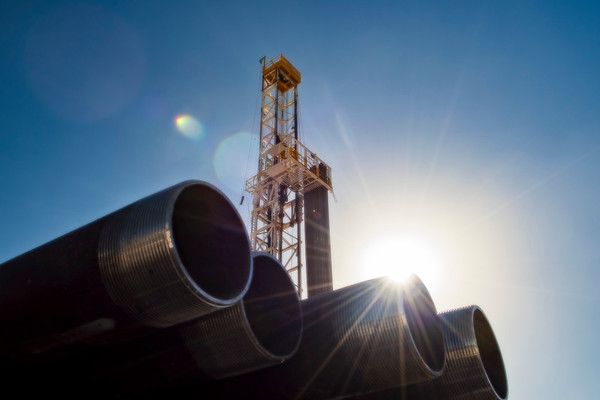
Regulators Ease Storage Rules, Fees for Texas Producers
Texas oil and gas regulators voted to temporarily relax their rules for underground crude storage and waive related fees and surcharges that producers typically pay.
Texas regulators are relaxing rules to temporarily allow underground crude oil storage in places other than salt caverns and waiving various fees and surcharges that producers typically pay.

“This order does not suspend any rule that protects public safety, health or the prevention of pollution,” said Wayne Christian, chairman of the Railroad Commission of Texas, which regulates the state's oil and gas industry. “All it does is allow operators to begin storing crude oil in all formations where it may make sense to do so.”
The shift aimed to help oil producers whose wells are spewing far more crude than the world can use after the coronavirus pandemic gutted global demand for jet fuel and gasoline.
Commissioner Ryan Sitton said he had received a copy of the proposal the day before the meeting. Nevertheless, he supported the proposal, which passed 3-0.
“I want to make sure we’re being cautious. It sounds like you are,” Sitton said, addressing the other commissioners in the live-streamed meeting. “And it’s great that we’re moving quickly and allowing some additional storage quickly, but I don’t want to hear a story in three months of how we put oil in some sort of cave somewhere and we ended up having groundwater pollution.”
Under the new rule, which was suggested by a new task force of industry groups, companies that apply for underground storage must show that the formation is confined to prevent the waste or uncontrolled escape of crude oil, Christian said. The exemption will last for a year, and oil will have to be removed from the wells within five years.
“It’s somewhat unprecedented, but I think it is exciting that we’re affording as much opportunity as possible in this emergency situation,” Christian said.
The commission also discussed a proposal to enact a coordinated production cut to help ease oversupply, but they killed the proposal, in part because producers were already slashing production. Texas produces about 40% of the oil in the United States, and about 5% of the oil in the world.
Philip Verleger, a longtime energy economist, estimates U.S. production has already fallen to 8.5 million barrels per day, down from 12.4 million barrels a day in February. He based his estimate on refinery runs, exports and other data.
“Production is already shut down,” Verleger said. “They don’t really need to do it. It’s been done more brutally by the market.”
- Associated Press
